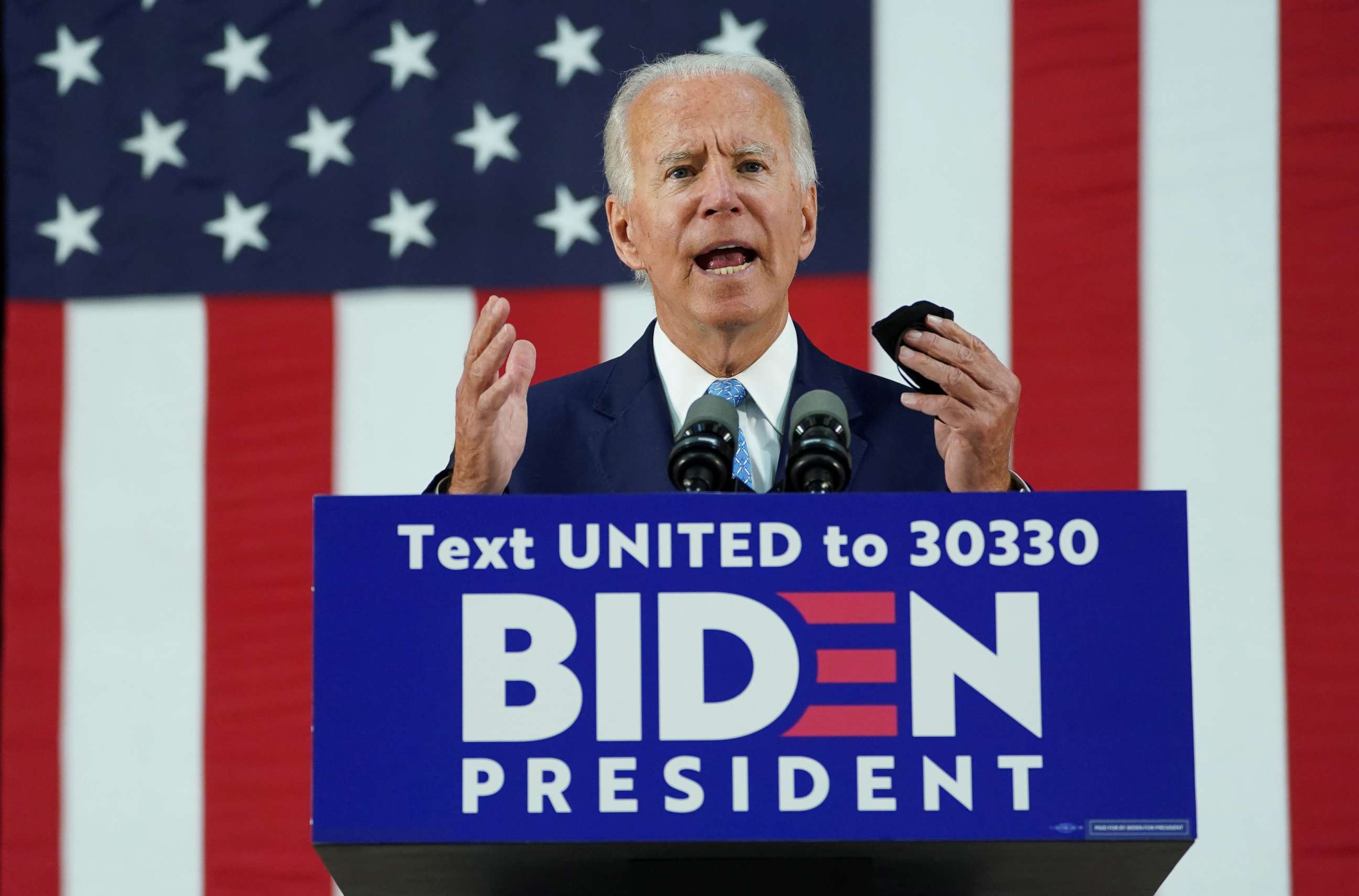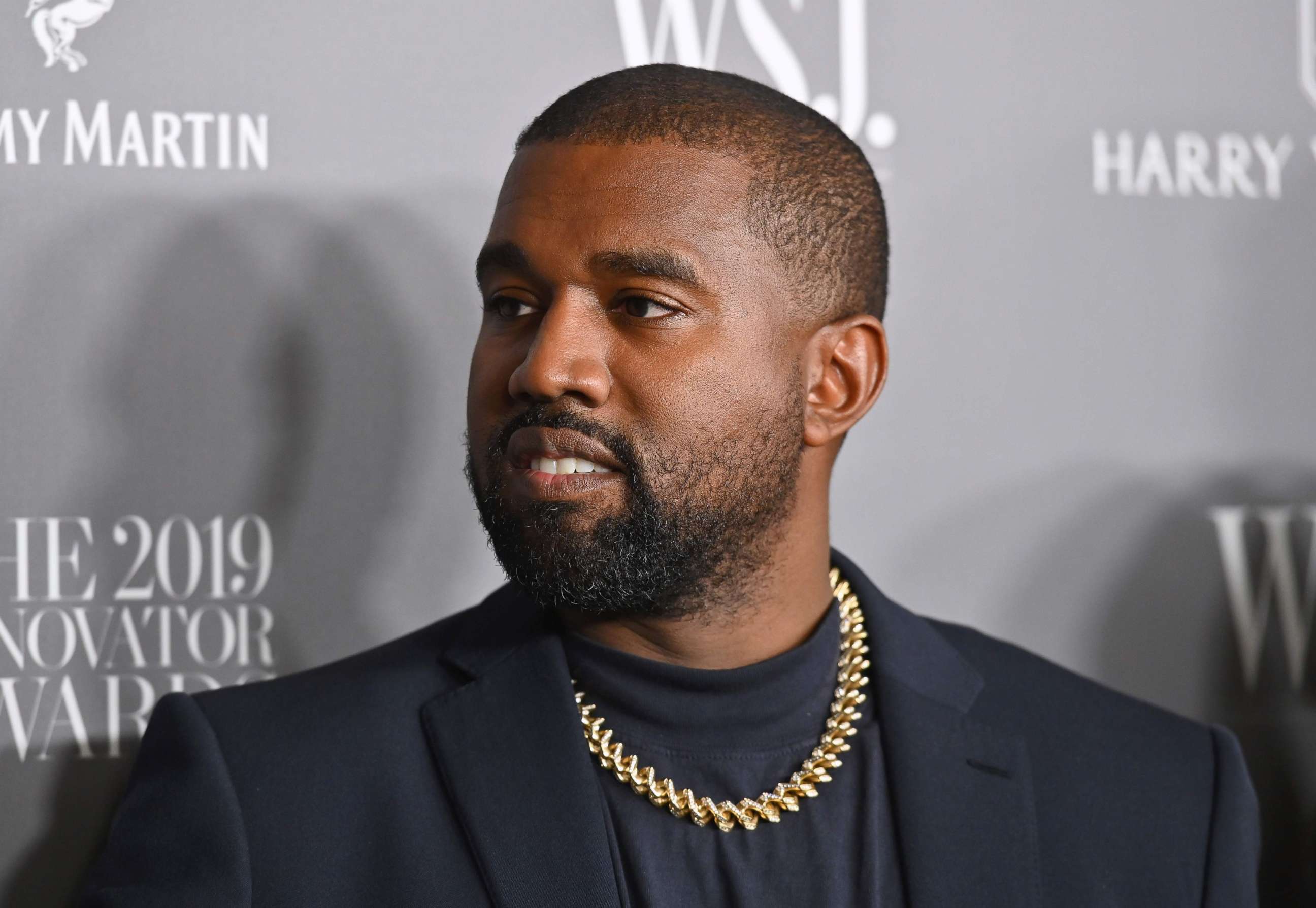The Note: 'Wartime president' wages different wars
Trump declared his commitment to "defeating the radical left."
The TAKE with Rick Klein
President Donald Trump, it would appear, is at war. It's just not necessarily the war against the coronavirus that has the unhappy attention of the nation this summer. At Independence Day celebrations over the weekend, Trump declared his commitment to "defeating the radical left, the Marxists, the anarchists, the agitators, the looters."
He is using warlike language to defend monuments -- including those honoring Confederate generals -- and is acting to build new ones, as part of what he called promoting "our values, traditions, customs and beliefs.""Their goal is the end of America," the president said of "angry mobs" who are seeking social justice and historical reckonings.
But even as he defends tributes to deceased Americans, it's his focus on living Americans that deserves close attention. This includes actions -- like attending gatherings that flout his own administration's COVID-19 guidelines -- as well as words, as he spreads misleading information about the extent of the threat posed by the virus.
For Trump, it marks an attempted return to more comfortable terrain around culture and race than anything surrounding the pandemic. His play is to use the next four months to rewind the political clock four years -- if not a few decades.
It makes for an uneasy brand of patriotism, as promoted by the president in the midst of a pandemic that is not ending anytime soon. Trump is putting his interpretation of history up against history-rocking events that are happening during his presidency.
The RUNDOWN with MaryAlice Parks
Joe Biden's message this holiday weekend might have included the same central slogan as his very first campaign message more than a year ago, but in other ways it was noticeably new.
"This Independence Day, let's not just celebrate the words. Let's celebrate that promise, commit to work, the work we must do to fulfill that promise," the former vice president said, referring to the historic words written at the founding of the nation that all men are created equal. He urged listeners, as he has since day one of this presidential race, to remain locked in "the battle for the soul of this nation."
What he did not do was suggest that any time in the nation's history had been perfect or rosy.

"Our country was founded on an idea. We hold these truths to be self-evident. That all men are created equal. We've never lived up to it," he said at the very start of his video -- a blunt declaration, opinion, and admission that is arguably rather harder to make by someone who, too, has been in the White House.
Big picture, there was little sugarcoating the country's past in Biden's short video -- no suggestion that a return to 2008 or 2016, when he was last in office, was going to be enough, especially for new or undecided voters.
During the Democratic primary, those not yet backing a Biden bid were worried about his tendency to revert to a conversation about his work with President Barack Obama and their past administration.
Instead, this video message, though it ticked through highs and lows in American history with an eye towards race, racism and struggle, did not show an image of the nation's first Black president.It may be subtle, but the Democratic nominee's campaign and messaging is evolving.
This week, at least one of the unity task forces set up between Biden and Sen. Bernie Sanders is also rumored to be releasing its platform.
The TIP with Meg Cunningham
Kanye West, the musician who once rapped, "No one man should have all that power," has announced his candidacy for president.
West toyed with the idea of entering politics in the past; he said he would run for president in 2020 back in 2015. But his preliminary entry into the race may have come too late: the filing deadline in many major battlegrounds, such as Texas, North Carolina and New Mexico, have already passed for an independent candidacy in the general election -- with the deadline in Ohio, Florida and Georgia, among others, fast approaching. The rapper has changed politics nearly as much as he's changed his style, once famously deriding President George W. Bush during Hurricane Katrina, saying "George Bush doesn't care about Black people."

Since Trump's election, Kanye has been an ardent supporter of President Trump while criticizing the Democratic party, even attending a meeting with Trump in the Oval Office wearing a "Make America Great Again" hat.
Though no official paperwork has been filed, some are taking his declaration seriously and warning against a potential split of the Democratic vote in November. Others, including Paris Hilton, who tweeted "PARIS FOR PRESIDENT" alongside some sparkly emojis, appear to think the musician is less than legitimate about his White House aspirations.
ONE MORE THING
Amid historic nationwide protests calling for racial justice, President Trump retweeted a video last Sunday showing a supporter yelling "White power." Then, more than three hours and thousands of views later, the tweet was deleted and the White House issued a statement claiming the president "did not hear" what the supporter could clearly be heard saying. As startling as it was, it was only the latest instance of the president using his vast social media presence to magnify racist messaging to a segment of his political base, ahead of the November election.
THE PLAYLIST
ABC News' "Start Here" podcast. Monday morning's episode features ABC News Chief National correspondent Terry Moran, who tells us what we can take away from President Trump's fiery July 4th speeches where he railed against protestors and the coronavirus. Then, ABC News' Stephanie Ramos explains why many are outraged after the death of a Latina solider in Texas. And, Julian Brave Noisecat from our partners at The Undefeated tells us why Native American team names in baseball and football could soon be changing. http://apple.co/2HPocUL
FiveThirtyEight Politics Podcast. In general, the Republican Party gets between 5 and 10 percent of the Black vote and less than a third of the Hispanic vote nationally. In this installment of the FiveThirtyEight Politics podcast, Clare Malone discusses the series of choices the GOP made, spanning decades, that made it an overwhelmingly white party. At key moments in history, Republicans considered greater outreach to minority voters but ultimately didn't take that path. https://53eig.ht/2BER67Z
WHAT YOU NEED TO KNOW TODAY
Download the ABC News app and select "The Note" as an item of interest to receive the day's sharpest political analysis.
The Note is a daily ABC News feature that highlights the key political moments of the day ahead. Please check back tomorrow for the latest.



